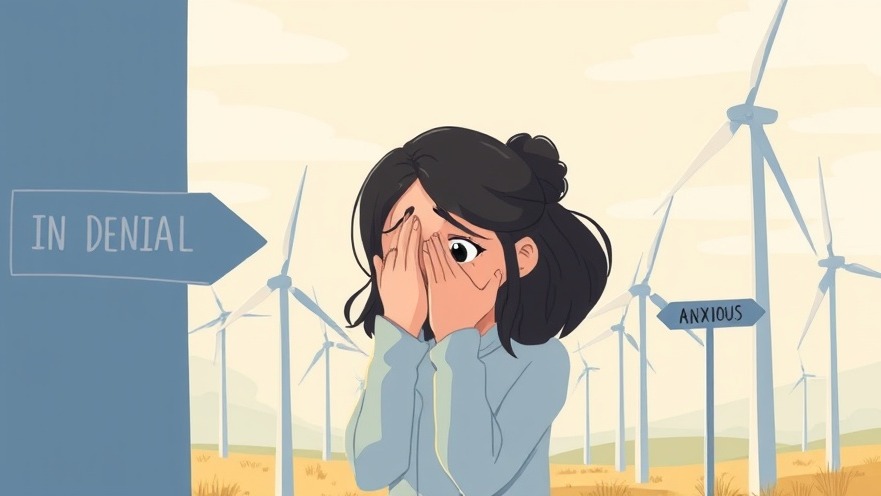
The Rise of Climate Anxiety: Understanding the Issue
Climate anxiety has emerged as a pressing concern among young people today. As climate change becomes more evident through extreme weather events and environmental shifts, children and teens are increasingly feeling the weight of the world on their shoulders. A recent study indicated that around 62% of young individuals experience anxiety related to climate change, while 67% report feelings of fear. This emotional burden is further exacerbated by a curriculum that often neglects to address the urgency of the climate crisis in a constructive way.
Building Awareness: The Need for Emotional Intelligence in Climate Education
The Climate Courage Schools initiative is a response to this gap, emphasizing the importance of “emotionally aware” climate education. The campaign pushes for an educational framework that acknowledges the emotional challenges the younger generation faces while also equipping them with knowledge about practical solutions. The aim is to foster a connection between students and nature, offering a holistic view of climate education that isn't just about despair but also about empowerment and action.
Unpacking the Disconnect: Why Young People Feel Hopeless
One major issue is the disconnection between what students learn in school and the reality they see outside their windows. During a recent climate summit, I asked students about carbon emissions in the UK. To my surprise, not a single one of them answered correctly, with many believing emissions were rising rather than falling. This lack of understanding contributes to their feelings of hopelessness. The curriculum needs to include successful climate solutions and achievements to inspire optimism, rather than focusing predominantly on environmental grief.
Highlighting Success: A Shift in Climate Messaging
When I discussed the UK's progress towards net-zero emissions with participants, their mood shifted. They learned concrete actions that have contributed to carbon reduction and began to feel a sense of possibility. Educational settings should not just shield students from the harsh realities of climate change; rather, they should expose them to the progress we're making. Highlighting successful climate action is crucial for abating their anxiety.
The Challenge of Integrating Solutions into the Curriculum
Educational frameworks have historically dismissed climate solutions as political or controversial topics. As a result, we miss opportunities to galvanize young minds toward creative problem-solving in real-world contexts. By integrating lessons on renewable energy, sustainable practices, and successful case studies into the curriculum, we can transform the narrative around climate change from one of doom and gloom to one of hope and innovation.
Empowering the Next Generation: The Role of Schools
Schools hold a transformative power to mitigate climate anxiety by empowering students with knowledge. Recognizing climate-related emotions should be a part of the learning process but must not overshadow the importance of actionable solutions. Initiatives like Climate Courage Schools are essential in training educators to foster an environment where climate education is balanced between emotional acknowledgment and solution-oriented discourse.
Concluding Thoughts: A Call to Action
Ultimately, shifting the educational focus from fear to proactive climate solutions can help alleviate climate anxiety among young people. By informing them of the progress we've made and involving them in discussions about future actions, we create a landscape of hope and engagement. Educators, policymakers, and advocates must unite to ensure climate solutions are central to curricula. Let’s equip the next generation with not just awareness of the issues but also the tools and inspiration to create change.
 Add Row
Add Row  Add
Add 




Write A Comment